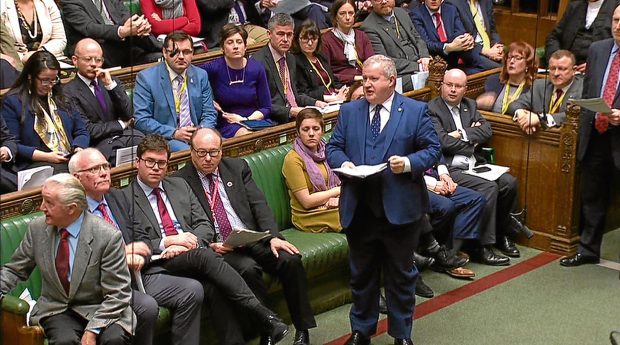By closing branches and replacing some with mobile banking vans, which do not provide disability access, the Royal Bank of Scotland appears to be in breach of the UK Equality Act, the SNP Westminster leader has claimed.
Ian Blackford called on Theresa May to meet RBS and make the case to keep the branches open as he raised the issue of closures across Scotland once again.
The MP for Ross, Skye and Lochaber argued one wheelchair user had described her experience of banking outside as “degrading”, as he asked: “Does the prime minister agree RBS has a legal responsibility to offer equality of services to disabled customers and will she hold RBS to account?”
Mrs May said closures were commercial decisions, adding: “Of course we all want to be able to see that all customers are able to access the services they need.”
Mr Blackford said: “Thirteen towns are to lose their last bank in Scotland. Prime minister I will give you one other opportunity, as the majority shareholder, will you meet RBS and make the case to keep the bank branches open?”
Mrs May replied the government had established the Access to Banking Standard that committed banks to carry out a certain number of steps before closing a branch and welcomed the Post Office reaching agreement with the banks to allow “more customers than ever to use Post Office services”.
Mr Blackford responded: “I would say to the prime minister we own RBS, it’s time you took your own responsibilities. By closing these branches and replacing some with mobile banking vans which do not provide disability access, the RBS appears to be in breach of the UK Equality Act.”
An RBS spokesman said: “We take our responsibilities under the Equality Act 2010 very seriously.
“Where a customer advises us of a disability, we take steps to ensure reasonable adjustments can be put in place to ensure disabled customers are able to access our banking services. We strive to ensure that our banking services are accessible to all customers.
“If any of our disabled customers have difficulty accessing the services provided by their mobile branch, we would encourage them to speak directly with a member of staff.”
